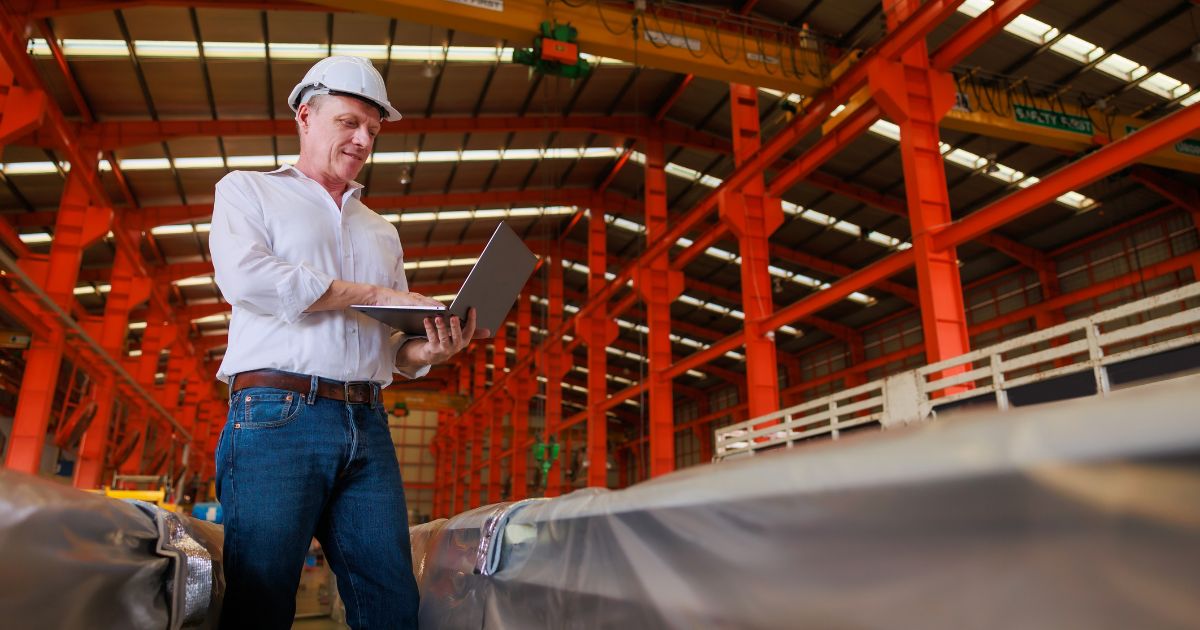
Top Considerations for Choosing the Right Commercial & Industrial Loan
When it comes to scaling your business, securing the right financing is arguably the most important step. Whether you’re expanding production capacity, purchasing new equipment, or simply optimizing your cash flow, a Commercial and Industrial (C&I) loan could be the key to achieving your goals. But with so many financial products available, how do you go about choosing the right C&I loan? Understanding the nuances can make all the difference between securing a loan that propels your business forward and one that might bog it down.
The First Step: Understanding Your Needs
First and foremost, clearly articulate the purpose of the loan. Are you planning to purchase new machinery, acquire real estate, or perhaps invest in research and development? Different needs often necessitate different types of loans. For instance, equipment loans generally have shorter terms compared to real estate loans. By identifying the exact purpose, you can narrow down your loan options to those which best align with your objectives.
Understanding your current financial status is pivotal. Lenders will look at your credit score, financial statements, and cash flow projections to determine your eligibility. A strong financial profile will not only increase your chances of approval but also secure better terms. If your financial statements are not up to date or if your credit score is less than stellar, you may want to address these issues before applying. Think of it like tidying up before guests arrive—cleaning up your financial act makes you a more attractive borrower.
The Second Step: Deciding Your Loan Type
- Term Loans: Term loans offer a lump sum amount that is generally repaid over a fixed period at a set interest rate. These are excellent for longer-term investments like expanding production facilities or significant capital expenses.
- Line of Credit: A line of credit allows businesses to draw funds as needed up to a specified limit, offering more flexibility. It is often used for managing cash flow or short-term financing needs—ideal for covering costs during any potential slow season.
- Equipment Financing: Designed explicitly for purchasing machinery or equipment, these loans use the purchased equipment as collateral. Equipment loans often come with lower interest rates because they are secured.
- Real Estate Loans: If you’re looking to invest in property, real estate loans are suitable. These loans typically have longer repayment terms and may offer variable or fixed interest rates.
Top C&I Loan Considerations
Now, let’s dive into the various considerations you should use when evaluating a loan for your business:
-
Interest Rates and Fees
Fixed vs. Variable Rates: Another essential aspect of commercial industrial financing is the interest rate structure. Fixed rates remain constant over the life of the loan, offering predictability in repayment amounts. On the other hand, variable rates can change based on the market, potentially leading to lower initial costs but added risk down the line.
Hidden Fees: Pay attention to hidden fees such as origination fees, prepayment penalties, and service fees. These can add up and significantly affect the overall cost of the loan. Always read the fine print and ask your lender to clarify any ambiguous terms.
-
Loan Terms
Short-Term vs. Long-Term: The loan term should align with the purpose of the loan. Short-term loans, usually less than three years, are suitable for urgent needs like working capital or immediate expenses. Long-term loans, extending up to 20 years, are better for significant investments like real estate or large-scale machinery.
Repayment Flexibility: How flexible is the repayment schedule? Does the lender offer options for monthly, quarterly, or annual payments? Does the loan provide any grace periods or balloon payments? Understanding these aspects can help you choose a loan structure that fits your cash flow.
-
Collateral Requirements
Secured vs. Unsecured Loans: Knowing whether a loan requires collateral is essential. Secured loans, backed by assets like real estate or equipment, often come with lower interest rates but pose a higher risk to the borrower. Unsecured loans, which do not require collateral, usually have higher interest rates and are harder to qualify for.
Valuation of Collateral: If you are opting for a secured loan, ensure you understand how the lender values the collateral. Overvaluation or undervaluation can impact the loan amount offered and the terms of the loan.
-
Lender Reputation and Experience
Research Lenders: Not all lenders are the same. Different financial institutions each come with their own set of pros and cons. Research potential lenders to understand their reputation, customer service, and history of handling commercial and industrial loans. Look for positive reviews and business testimonials, too.
Specialized Experience: Work with lenders who have experience in your specific industry. A lender familiar with your business landscape can offer valuable insights and tailor the loan to meet your unique needs.
-
Application Process
Documentation: Be prepared to provide a series of documents, including but not limited to financial statements, business plans, tax returns, and credit reports. Having these documents organized and ready can streamline the application process.
Approval Time: Different loans and lenders come with varied approval times. If you need your funds immediately, opt for lenders who offer quicker turnarounds. However, keep in mind that faster approvals may sometimes come with higher interest rates or less favorable terms. Sometimes good things are simply worth the wait!
-
Your Business Plan and Financial Projections
Detailed Business Plan: A robust business plan can significantly boost your chances of loan approval. Lenders want to see a clear roadmap of how you plan to use the funds and how you anticipate generating revenue to repay the loan.
Financial Projections: Include detailed financial projections for at least the next three to five years. Demonstrating anticipated revenue, expenses, and profit margins can make your loan application far more compelling.
Choosing the right C&I loan is not a one-size-fits-all situation. It requires careful consideration of various factors, from understanding the specific needs of your business and assessing financial health to evaluating different types of loans and lenders. By focusing on these top considerations and preparing a strong application supported by a detailed business plan, you can secure the funds you need and make a well-informed decision that supports your business objectives.
If you’re still unsure or need personalized advice, contacting any of Ascend Bank’s commercial lending experts can be an invaluable step in navigating the complexities of industrial financing. Remember, the goal is not just to secure funding, but to secure the right funding that will foster the growth and sustainability of your business in the long term.



